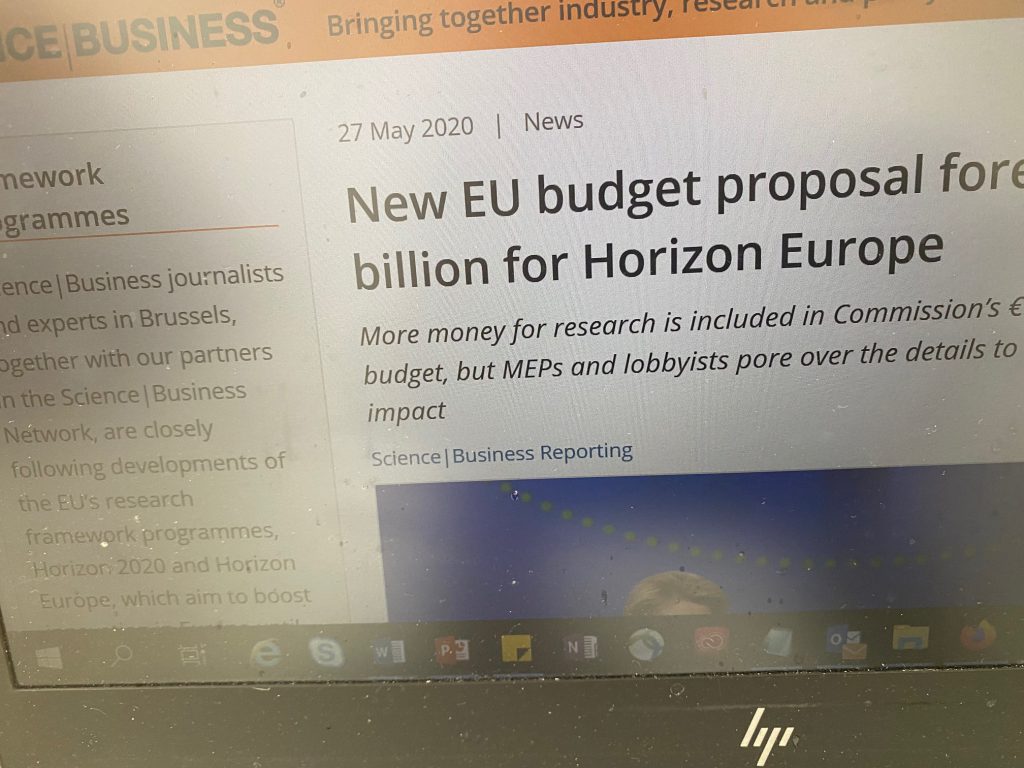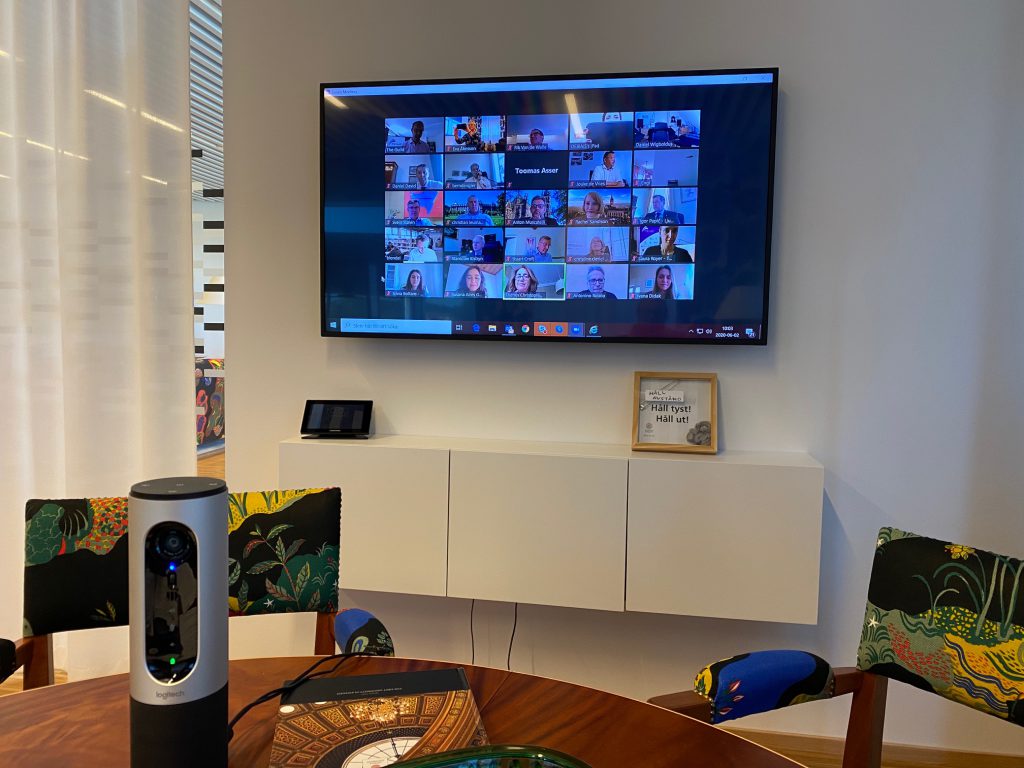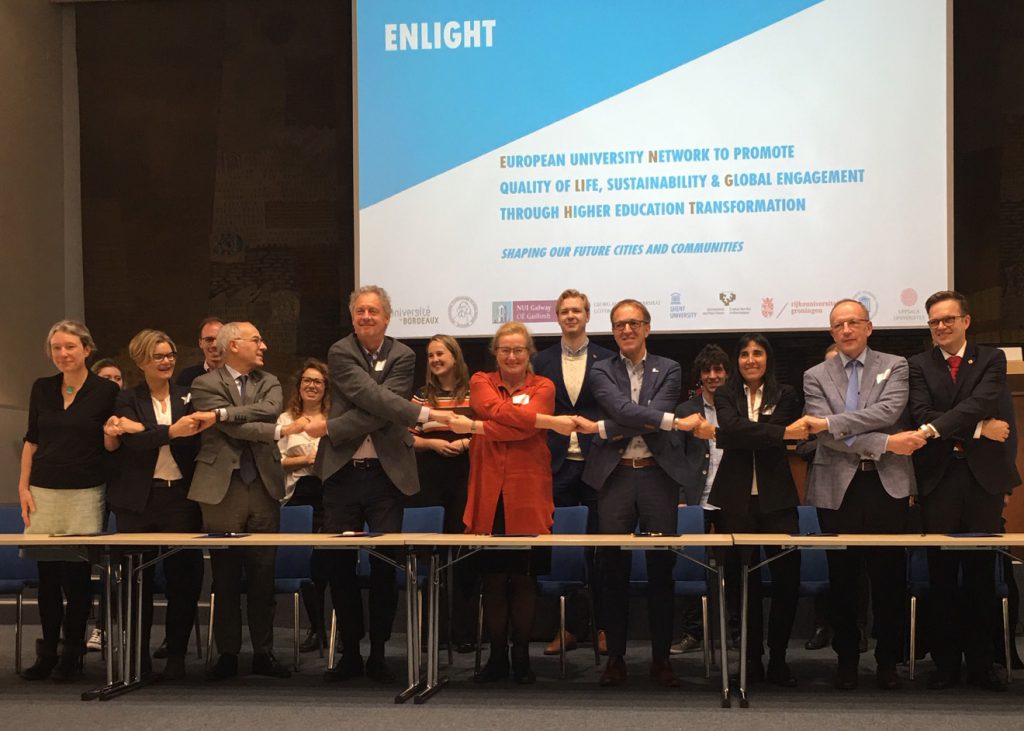Much is happening right now in the European arena for research, education and innovation. Just as in Sweden, the ongoing pandemic is affecting discussions. On Tuesday the heads of universities in The Guild network held a General Assembly, where we welcomed Babeș-Bolyai University, Romania, as a new member, and discussed issues of mutual interest, including the impact of the coronavirus pandemic on our universities.
The pandemic also has an impact on budgetary planning at EU level. Last week the European Commission presented its new proposal for a long-term budget together with a seven-year post-coronavirus recovery budget. They forecast a partial economic recovery in 2021, while warning that a recession with high unemployment will have marked consequences. Negotiations are far from being finalised, and it will probably be up to Germany to wrap up the budget when they take over the presidency of the EU on 1 July.

According to the current proposal, the seven-year overall budget for research, education and innovation, Horizon Europe, will be EUR 94.4 billion, part of which will come from a post-coronavirus emergency temporary recovery instrument, Next Generation EU. The European Research Council funding for excellent research will continue, along with important instruments for mobility and infrastructure. Part of the overall budget will go to specific areas such as health, green economy and innovation. It is unclear how this money is to be used. The Guild has asked for clarification and has stressed the importance of continued mobility in Europe. This applies not least to student exchanges. At a time of travel restrictions and great uncertainty, allowing young people somehow to meet across borders becomes more important than ever for building mutual understanding.
The EU also aims to strengthen and coordinate the national systems for research and education, through the European Research Area (ERA) and the European Education Area (EEA). Efforts to determine the relationship between the UK and the EU after Brexit continue, as does work on a new vision, under the heading “Towards a 2030 vision on the future of the universities in Europe” – particularly important to watch moving forward. The document presented on progress to date gives us reason to make our voice heard in this context in the time ahead.

The Guild has already made an initial written response presenting its views on the document, and at the meeting last week that I have already mentioned, Christian Leumann from the University of Bern and I (Eva) introduced a discussion on the vision and how our experiences this spring affect our outlook on the future. Academic freedom and critical thinking are particularly important in times of change. Academic freedom is not only a prerequisite for excellence and innovative thinking; it is also a cornerstone of a democratic society. Any strategy for change must be thoroughly discussed and have the support of the universities. The Guild calls for greater understanding of the need for a long-term perspective, and of the fact that all change requires resources if research and education are not to suffer. We know, for example, that a transition to open publication (Open Access), which is basically positive, involves conflicting objectives and entails costs. We wrote about Plan S in a previous blog.
In the wake of the coronavirus pandemic, we perceive growing expectations from the EU of increased coordination on societal challenges and that the research community will seek common approaches and agendas across national and disciplinary borders. But where does the border lie between independence and coordination? How can we find the right balance? Being open and cooperative while maintaining integrity could be a good line to take. One example of the desire to find synergies and pool expertise is the European Universities Network project (EUN), which has been welcomed by universities and has led to many applications and projects. Its ‘bottom-up perspective’ offers universities and governments a chance to jointly investigate and eliminate barriers to coordinated development. Uppsala University is expecting a decision on our EUN application ENLIGHT, in which we partner with eight other European universities, at the beginning of July.

The EU is the third largest funder of Swedish research and an important platform for international cooperation, so it is important that we keep abreast of developments in European research, education and innovation policies. The funding bodies here in Sweden have recently been instructed by the government to propose goals and strategies for Swedish participation in the EU Framework Programme Horizon Europe. We expect the higher education institutions to be involved in this work and that many people in academia will take a great interest in it. These issues will therefore certainly come up again in the autumn when we also expect a government research bill.
We will soon have another opportunity to discuss some of these issues at the Coimbra meeting on 11–12 June, in which the Deputy Vice-Chancellor will participate. Clearly, EU issues keep going and work is in full flow in Brussels and international networks, even in these times of the coronavirus.
